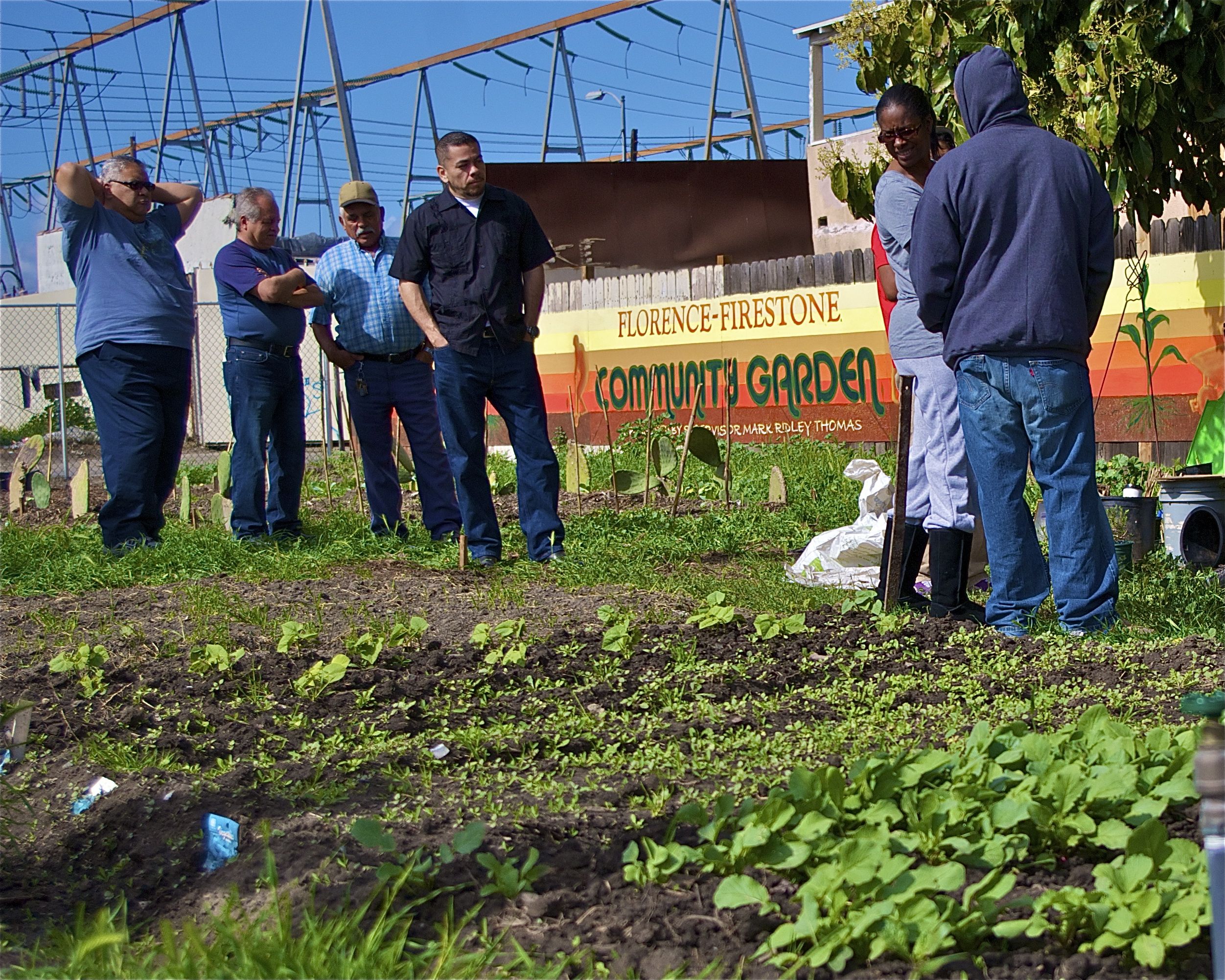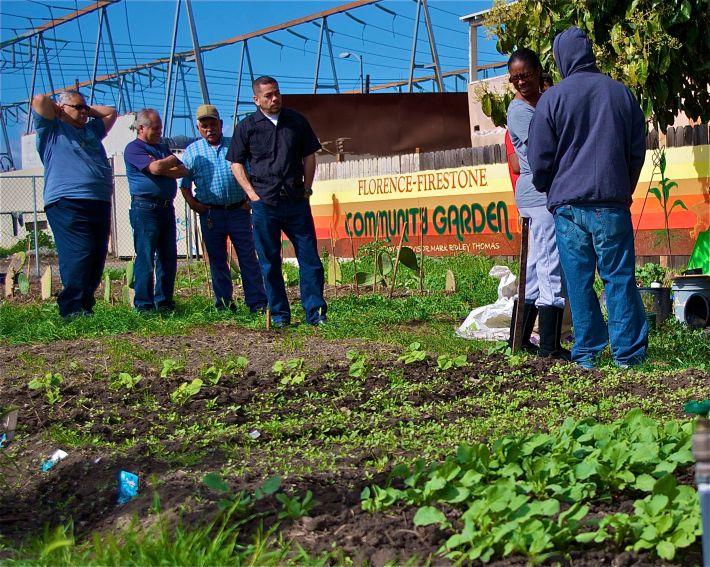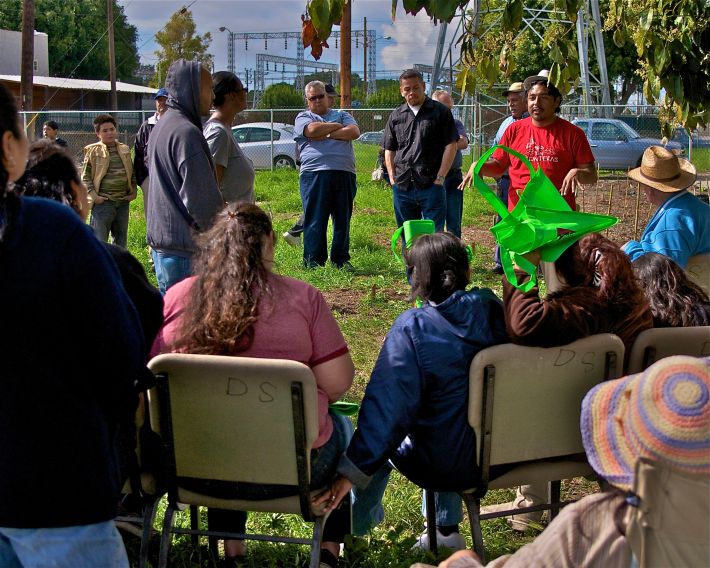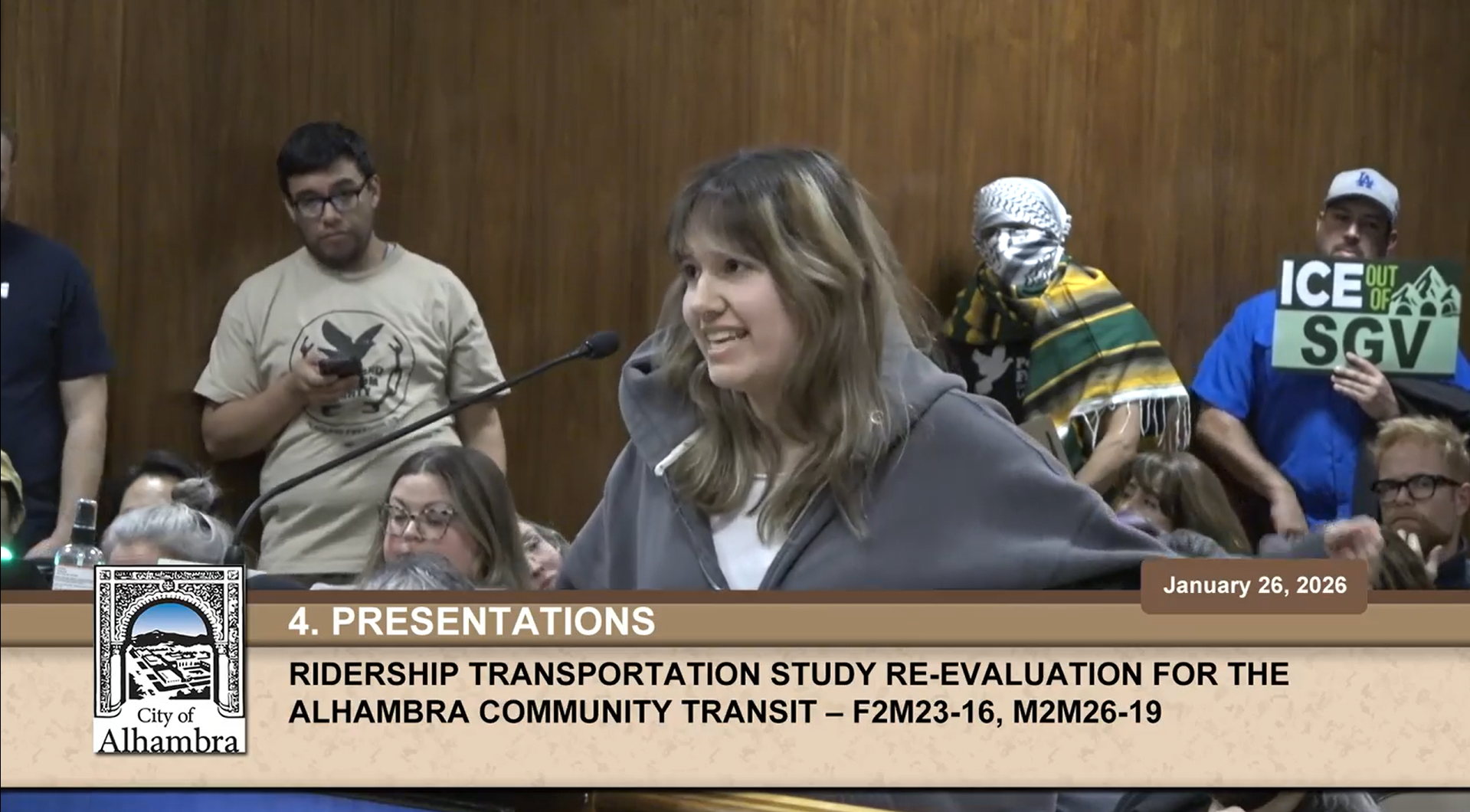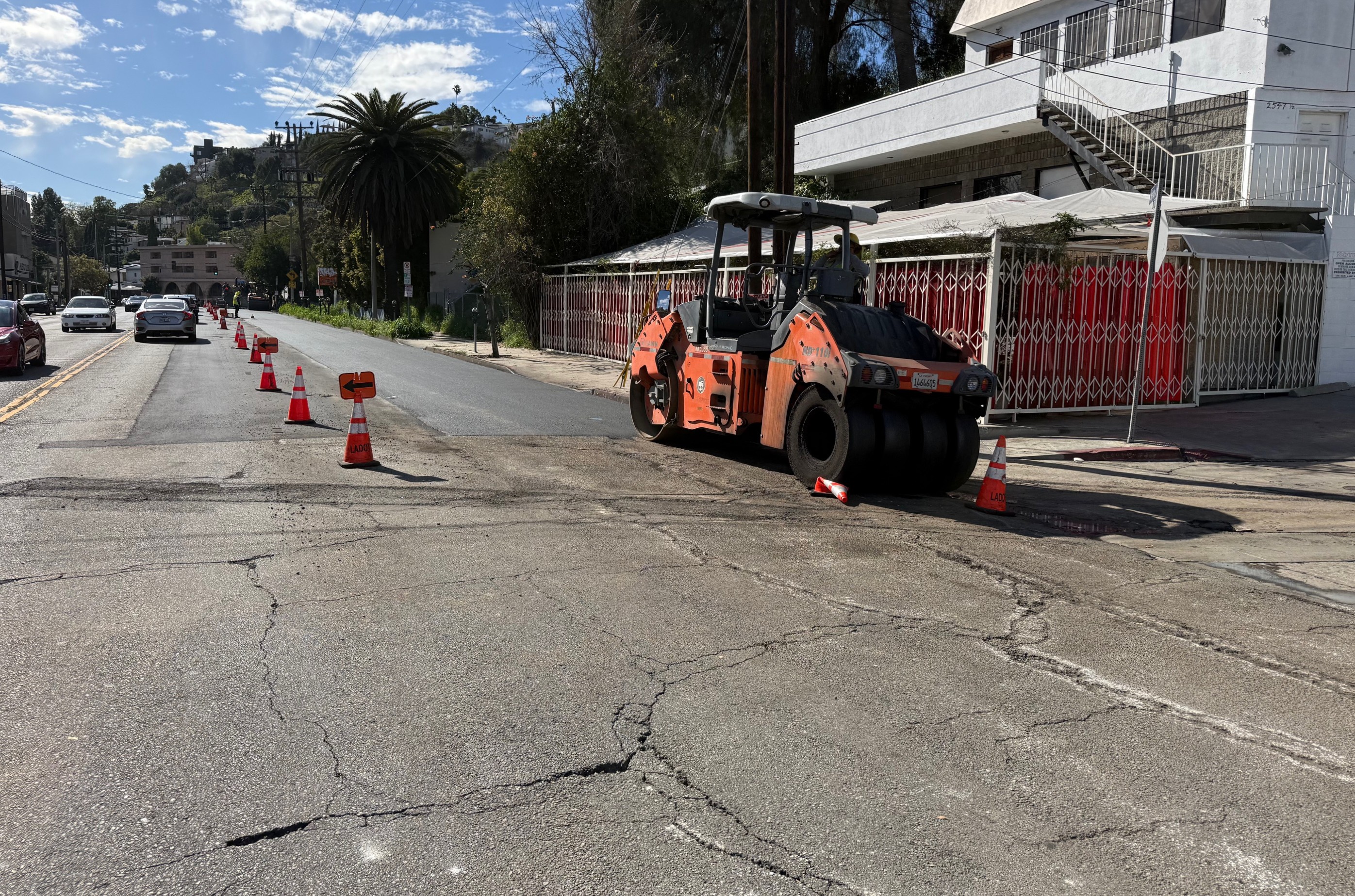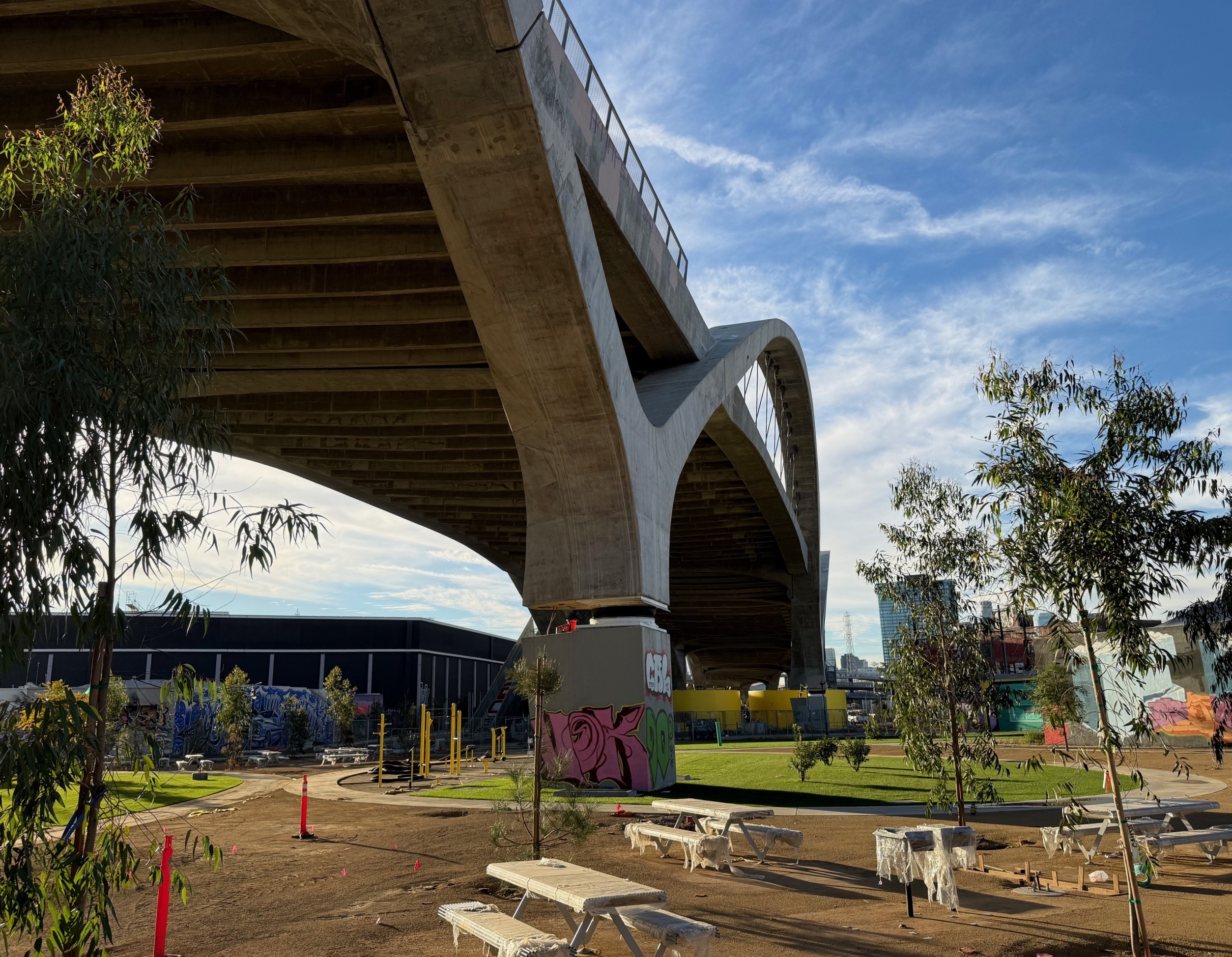When he first came to check out the lot at 98th and Pace, Edgar Flores found himself stumbling across the carcasses of animals that had been dumped there. A couple of dead dogs, a bag full of dead roosters, he lamented, “the smell was horrible!”
Edgar, a longtime gardener and representative of the Los Angeles Community Garden Council (LACGC), was there at the behest of the Florence-Firestone community, who had long considered the lot an eye- (and nose-) sore. They were fed up with it being used as a dumping ground for all kinds of trash, including animals that were casualties of illegal dog and cock fights in the area, and had finally stepped forward to request it be turned into a community garden.
Last September, the LACGC helped the community launch the garden, with support from Supervisor Mark Ridley-Thomas' office in the form of funds for a shed, fence, and irrigation.
Organizing the community ahead of the launch had been a labor-intensive process, admitted Flores. He and Enrique Vega spent hours knocking on doors and talking on the phone with residents, just to get out basic information about community gardens, build trust with residents, and establish relationships with potential gardeners.
Their task was made more difficult because organizational meetings needed to be conducted in two languages. Sometimes they had interpreters and headsets that allowed for simultaneous translation. But sometimes, they didn't. At the introductory gardening workshop Edgar ran this past weekend, he was acting as his own translator, alternating between Spanish and English in his presentation and when fielding questions from the roughly 30 gardeners in attendance. Interestingly, even though language issues can slow down the pace of information dissemination and have the potential to alienate or frustrate participants, the gardeners present appeared to take it in stride. Their patience underscored their commitment to working together as a group and moving this project forward.
In fact, the garden is beginning to take on a momentum of its own, even though it is only four months old. The gardeners voted on the size and number of the plots that would be available to residents of Florence-Firestone. And, they agreed to the creation of four communal plots, the produce of which would be open to anyone in the community—even non-gardeners. The officers elected by the gardeners have also taken on an active role, helping to make the phone calls to keep members informed, address gardeners' questions, and organize meetings. Even more importantly, once members got accustomed to voicing their opinions about the garden, they became more active in raising their voices to report other issues of concern to community leaders—a clear signal that they now feel empowered to make their community a better place.
Still, moving a garden from zero to flourishing is a slow process. Under normal conditions, that transformation may take 6 months to a year of continuous growing. In lower-income communities like Florence-Firestone, added challenges like the lack of funds for the overarching maintenance of the garden (like waste removal), the cost of seeds, finding and obtaining seeds for culturally appropriate plants (often, the plants Latino gardeners want are not available in seed catalogs), and trying to convince gardeners plant a diverse mix of produce that will keep the soil healthy can be daunting.
Edgar is optimistic, however. He believes that we, as a community, get a lot of working together to grow food and from sharing our surpluses with each other.
We need to see it as more than a garden, he concluded. “It's a livelihood.”
Plots are still available. If you are a resident of Florence-Firestone and would like to be part of the garden, please contact Edgar Flores at 323.250.2624 or ecoxicano@gmail.com before February 29, 2012.
